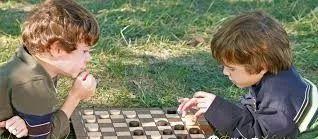For children who are new to chess, they may often encounter some problems in the process of learning chess, and "casual chess" is one of the biggest enemies of the problems we will encounter.
The so-called "casual chess", as the name suggests, is a relatively random chess game that has not been fully considered.
Although casual chess is more common among novice chess learners, it does not mean that there are no masters, but it will be relatively few.
Casual chess is more like a habit developed in the process of learning chess, if you do not pay attention to correction, then the level of improvement will be limited.

If you want to reduce the habit of casual chess, you must find the reason for the occurrence of random chess, and then take targeted corrective measures.
There are many reasons for the emergence of casual chess, which boil down to the following points:
Lack of interest
Interest and curiosity are the keys to triggering children's thinking, and once children lose interest or curiosity, then they may simply think of playing chess as a task.
To put it bluntly, the mind is no longer on this game. For children, playing chess is only a task that is rushed to complete, so the pursuit is not victory, but speed.
Drop fast, don't think about it, just to complete the task faster, and when it's over, you can go and do something else.
When this kind of problem occurs, the most important thing is to correct the child's attitude of learning chess, to face up to each game, to respect the opponent, but also to respect themselves.
Secondly, it is also indispensable to improve children's interest in learning chess, and it may be more effective for children to learn some small stories about chess culture or chess-related stories than blind preaching.
Bold but not careful
Children who learn chess have a variety of personalities, some may be more mischievous and active, while others are a "quiet beautiful man".
Some parents will think that playing chess is suitable for children with quiet personalities, and letting their children learn chess is also to be able to make their children patient.
Relatively speaking, children with more impatient personalities will be easier to play chess, because when they are impetuous, they will be eager to achieve results, and they will lack thinking.
This is not to say that naughty and active children with impatient personalities are inferior to children with quiet personalities.
In fact, relatively speaking, active children prefer to take risks, so many times they may have some unique ideas, which is very valuable, but many times they may lack patience and lack enough care, so it leads to the habit of casual chess.
For this situation, it can be improved by helping the child to review more.
Review, the need is not only the child's brain power and memory, but also the need for the child's patience, so often help the child to review the game, help to cultivate the child's patience.
Lack of independent thinking
Lack of initiative is one of the bigger problems when learning chess.
For children, the cultivation of thinking habits is very important, children need to have their own subjective thinking, otherwise follow the ideas of others, often fall into the trap of others.
The appearance of casual chess is often due to thinking too much and not thinking about the problem from multiple directions.
When playing a game, ask yourself more: Why did he do this? What impact will this step he take have on me? What would happen if I took this step? What are the advantages for myself? What kind of problems may arise?
Only through thinking can we gain the initiative.
In fact, for children's habit of casual chess, a very effective way is to let children participate in more games.
The result of the game is still relatively large for the child, if the game is not serious, it may make the child "lose very badly". After the baptism of the game, the child may have a different harvest.
If you think this article is good, please share it with your circle of friends! Thank you!
▼